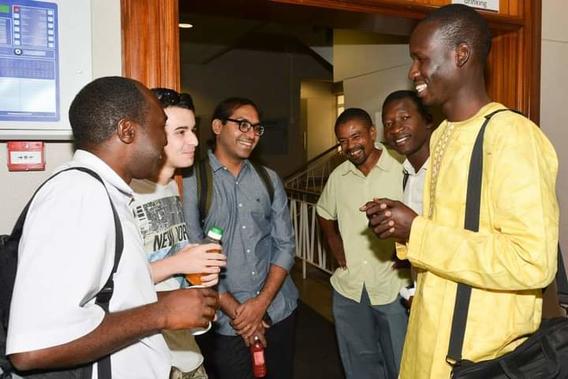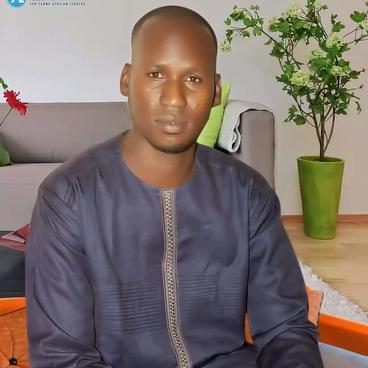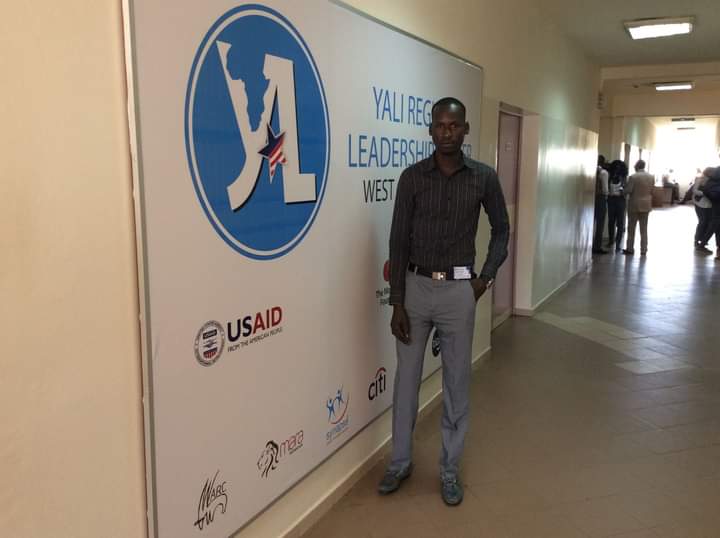Two out of three households in rural Africa do not have access to electricity and reliable energy. That’s an issue that Ibrahima Ngom knows well.
Ngom grew up in Khandiar, Senegal in West Africa, where there was no electricity, no television, and no radio. He recalls people in his village working more than 12 hours a day without being able to afford a candle to illuminate their homes.
“Growing up in such an environment pushed me to study renewable energy, hoping to find a way to help address this issue,” Ngom said. “Sustainable energy can improve and even save lives, support the expansion of industry, modern agriculture, increased trade, and improved transportation. These are the building blocks that allow people to escape poverty and create a better life for themselves.”

Ngom is one of 24 fellows of the 2022 Mandela Washington Fellowship for Young Leaders, the flagship program of the U.S. Government’s Young African Leaders Initiative (YALI). The program brings leaders and innovators from every country in sub-Saharan Africa to the U.S. for academic and leadership training.
Last summer, the African Union Commission (AUC) conducted a series of regional consultations to discuss the content of the draft strategy for climate change. Ngom was invited to participate, raising points on energy poverty in rural households and energy injustice. After a five-day workshop, the AUC extended an invitation for Ngom to provide technical input into the drafting process on climate change and energy justice.
“My contribution was to alert policymakers to the energy injustice in rural areas and how this contributes to climate change in general,” Ngom said. “I have given some predictions and future opportunities about how energy justice can contribute to building climate resilience. More importantly, I learned a lot from the experts and policymakers, and also developed (networks) for my career prospects.”

Ngom, a current doctoral candidate in Energy Systems and Environment, is particularly passionate about the University of Minnesota’s work toward the United Nations Sustainable Development Goals.
Ngom is most passionate about the seventh goal—affordable and clean energy—because eradicating energy poverty, Ngom said, is one of humanity’s greatest challenges.
“One of the main challenges facing rural households in Senegal is energy poverty,” he said. “Most of the household energy consumed in the Senegalese rural areas comes from biomass, the use of which not only causes health problems for women and children, but also deforestation, which accelerates the impact of climate change in these areas.”
“Economic development without a healthy environment does not compromise the development of future generations,” he added. “It’s important for me to let my community understand and be aware of the deterioration of climate conditions of the universe.”
After receiving his doctoral degree, Ngom hopes to work with an international non-governmental organization (NGO) to support sustainable development. He hopes to create a training center dedicated to the clean energy field to train young people to promote sustainable energy. Ultimately, he says, creating change is only possible through comprehensive education.
Some of his long-term goals include:
- Helping women identify good technology practices, such as improved cooking stoves, to mitigate changes that threaten their social and economic wellbeing
- Providing analytical data related to energy accessibility and affordability to policy makers and suggest actions that can improve access to reliable and affordable energy in small, rural areas
- Establishing a technical training and research center for my long-term goals of providing electricity in areas not served by the traditional grid, through the use of renewable energy
“I feel very excited and proud because I have been selected among the 700 young African change makers in a pool of more than 9,000 applicants,” Ngom said of his award, “but very humble because there (are) so many great projects that have been carried around the world by very young leaders.”
This year, 24 of Africa’s brightest emerging leaders will participate in an academic and leadership institute at the University of Minnesota through the Mandela Washington Fellowship, part of the Young African Leaders Initiative, which is sponsored by the U.S. Department of State and hosted by the College of Education and Human Development (in the Department of Organizational Leadership, Policy, and Development) in partnership with the Humphrey School of Public Affairs.
